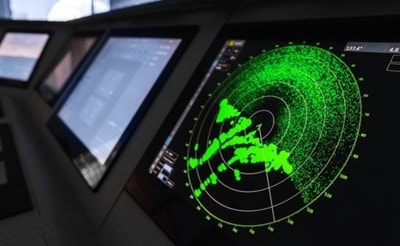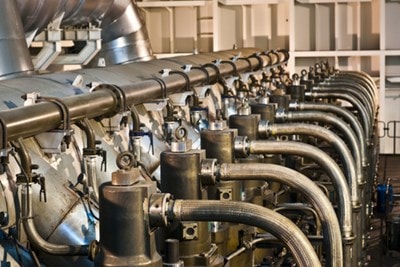Maritime Autonomy Policy
Innovation in shipping presents exciting opportunities for industry and challenges for regulators. The recent emergence of autonomy in shipping and its wide range of applications is no different. Autonomy in shipping covers everything from remotely operated vessels where a human is in the loop, through to fully autonomous vessels that are operated by software or AI systems. There are many potential benefits including taking humans out of dirty and dangerous situations, while providing environmental benefits such as improving fuel efficiency.
Katrina Kemp
Maritime Autonomy Policy Lead, (Maritime and Coastguard Agency)

As the regulator for shipping in the UK, the Maritime and Coastguard Agency is supporting industry as new technologies and vessels emerge and evolve, while ensuring that all maritime users remain safe and the environment is protected. The biggest challenge to us as a regulator is how we update regulations to ensure these vessels remain safe, secure and environmentally sound without stifling innovation. As policymakers it is important we ensure that we do not inadvertently cause problems for current shipping.
The UK’s Maritime Autonomy Regulation Lab project springboarded our policy work for autonomous shipping. This 2018 Regulator Pioneer Funded project provided:
- a detailed review of the UK’s Merchant Shipping Act highlighting gaps and areas requiring clarification;
- extensive stakeholder engagement with operators, developers (software, sensor, equipment, as well as vessels) along with academics and other government departments regulating innovation; and
- alternative approaches to testing policy proposals with the use of stakeholder engagement and serious gaming.
Unsurprisingly the project identified gaps in the current Merchant Shipping Act where there was no provision for remote operation centres and remote operators. The operation of ships from a remote operation centre had never really been considered, let alone legislated for to ensure it could happen safely.
To ensure the safety of remotely operated and fully autonomous vessels we are updating UK regulations initially for smaller remotely operated unmanned vessels with Workboat Code Edition 3. We are also using the outcomes of our review of the Merchant Shipping Act to prepare primary legislation updates to ensure the gaps identified can be addressed and autonomous vessels of any size can be regulated safely. As the development and updating of regulations takes time, the UK’s policy has found a way to support companies putting autonomous vessels on the water while regulations are being updated. The UK approach has been to identify a suitable certification route, using exemptions issued following a safety case assessment, including survey of the vessel and any shore-based sites.

This is possible because we are collaborating and learning from industry, academia and other industries regulating innovation. This collaboration goes beyond updating UK regulations and into discussions at the International Maritime Organization (IMO) where we are working with other nations to allow the operation of autonomous vessels internationally. The IMO is developing an international goal-based code, allowing flexibility for industry in how it demonstrates vessels can meet regulatory requirements. This approach means the Code does not go out-of-date as the technology continues to develop. The plan is that a non-mandatory version of the IMO Code will be adopted in 2025, and will become mandatory in 2028.
It would be wrong to suggest that autonomy is completely new to shipping. Decision support systems to aid the modern-day seafarer already exist and have done so for a long time - whether that be auto-pilots or unmanned engine rooms. From a regulatory perspective the IMO had discussions in the 1960s regarding how it should regulate automation. The difference this time? It is happening, and it is happening quickly. I don’t believe one day there will only be a world of autonomous and remotely operated ships, in the same way we don’t only have container vessels today. It will be a mixed environment, which itself presents challenges alongside ensuring the safety of those on other vessels, considering how unmanned and autonomous vessels communicate with conventional crewed vessels, and the role of autonomous vessels in search and rescue.
So, will this all happen? Yes, eventually. It will take time, but the developments are happening in smaller vessels where the technologies will be proven. At the same time the MCA will continue to innovate on policy and regulation to ensure unmanned and autonomous vessels are safe, secure and environmentally sound.